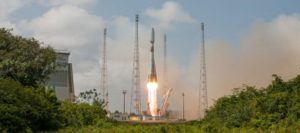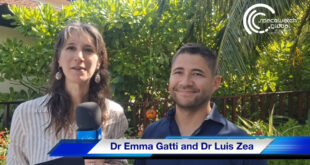
An Arianespace medium-lift Soyuz launch vehicle transported the French CSO-1 reconnaissance satellite safely to orbit on 19 December 2018. This marked the third flight of Arianespace’s Soyuz and the launch was performed for France’s CNES (Centre national d’études spatiales) space agency and the DGA (Direction générale de l’armement) defence procurement agency, on behalf of the French Ministry of Defence.
With a mass of 3,566kg, the Airbus Defence and Space-built CSO-1 spacecraft was delivered into sun-synchronous orbit. The satellite is the first of the French Optical Space Component (CSO – Composante Spatiale Optique) programme, comprising a constellation of three satellites dedicated to Earth observation for defense and security. They will be placed into polar orbit at different altitudes, and will carry out two different missions: reconnaissance for CSO-1 and CSO-3, and identification for CSO-2.
Once at its final orbital location, CSO-1 will be used to take 3D pictures and to acquire very-high-resolution images in the visible and infrared bandwidths, day or night, and in fair weather, and using a variety of imaging modes to meet as many operational requirements as possible.
The mission – designated Flight VS20 – was the 305th overall carried out by the three members of Arianespace’s launcher family (Soyuz, Ariane, and Vega), and the 20th by the Russian-built Soyuz vehicle from French Guiana since its 2011 service entry at the Spaceport. Flight VS20 also was Arianespace’s 11th mission of 2018. It was the sixth launch in under three months, from 25 September to 18 December 2018. Since 6 November 2018, four launches have been conducted at a rate of one every two weeks.





